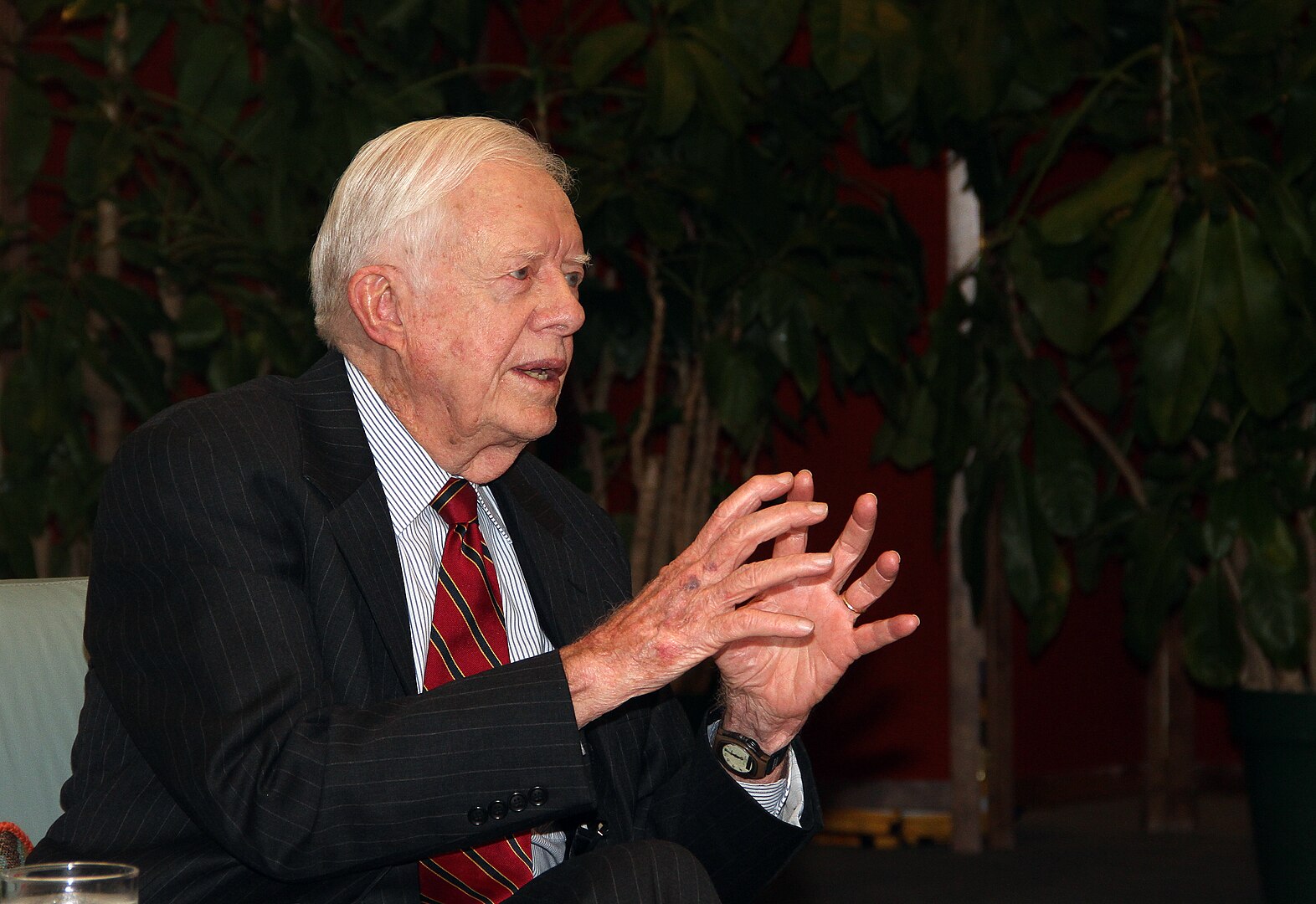Jimmy Carter Remembered in Montana
Former U.S. Sen. Max Baucus and U.S. House Rep. Ryan Zinke recall interactions with the former president who died Dec. 29 at age 100
By Tom Lutey, Montana Free Press
They were D.C. newcomers elected by voters tired of Washington political scandals. Max Baucus was elected to Montana’s western U.S. House District three months after Richard Nixon resigned in 1974. Jimmy Carter, a Democratic governor from the Deep South, would launch his longshot presidential campaign by the end of the year.
“He was an outsider,” Baucus said Monday following Carter’s death at age 100. “People were tired of politicians in Washington, Watergate and so forth. I was part of that momentum as well, the Watergate class of ’74.”
Baucus, like other Montanans familiar with the 39th president, remembered Carter’s graciousness and the plain-spoken way in which Carter told people exactly what he thought. He was a “cause guy” who didn’t give up on what he believed, Baucus said of Carter, sometimes at great political expense.
“The Washington political establishment really didn’t warm up to him, or he to them, probably because he brought in his campaign team from Georgia, and he wasn’t an aristocratic Georgian. He was a peanut farmer.”
Baucus, who left the U.S. Senate in 2014, keeps a photo of himself and Carter on the White House lawn. In the picture, the senator just two years into his term holds his toddler son, Zeno, now a deputy U.S. attorney. Baucus remembers being comfortable offering advice and encouragement to the president, who once, with wife Rosalynn Carter, took the Montana Democrat to Sunday school. Baucus, 83, said he thought he might get a visit to Camp David to offer his advice, but Carter gave him something more personal. Religion and Rosalynn made Carter who he was, which on that trip Baucus observed. The president and first lady were so close.
The late 1970s were tough times. Year over year, inflation was 9.9%, largely because of rising oil prices. The U.S. government was supplying arms to Israel in the Arab-Israeli War. Arab countries with oil retaliated by imposing an embargo against the United States.
Carter, responding to the crisis, made an unpopular public address asking Americans to cut back on energy use. In the “malaise speech” Carter said the Americans were suffering a “crisis of confidence” and encouraged civic sacrifice.
Carter wouldn’t recover from the speech, Baucus said. Things only got worse when Americans at the U.S. embassy in Iran were taken hostage for 444 days. Islamic fundamentalists had taken over the Iranian government and supporters seized the U.S. embassy.
Carter launched a military operation in April 1980 to rescue the hostages, which ended in the desert when one of the rescue helicopters carrying special operations forces collided with a support plane, killing eight troops and an Iranian. Helicopter wreckage in the Iranian desert made the nightly news.
Carter never forgot the mission, which he recounted in detail to U.S. Rep. Ryan Zinke, R-Montana, at President Donald Trump’s inaugural dinner in 2017. They were both Navy veterans, Carter a submariner, Zinke a SEAL. Zinke had asked for the details of a bold mission gone wrong.
“I remember it because I was in high school and it was one of the things that probably determined the election” in 1980, Zinke said. “There was the oil embargo and that disaster.
“It was a difficult call, and I wanted to know from his perspective,” Zinke said. “And he went through it with vivid memory of that tough decision about whether or not to go, because it was an iffy mission.”
Zinke said the decision to attempt a rescue to storm the embassy was the right choice, but extremely risky, more so than the Navy SEAL mission to kill Osama Bin Laden in Pakistan in 2011.
Iran released the hostages on Jan. 20, 1981, the same day Republican Ronald Reagan was sworn in to be president.
Years after Carter’s single presidential term ended, he would turn up at the U.S. embassy in China, where Baucus was at the time ambassador. The former president was 90, making his annual trip to China to memorialize his role in normalizing U.S.-China relationships.
Former President Richard Nixon moved to recognize the People’s Republic of China, ending the 25-year period of isolation between the two governments. Carter formalized those relations.
On this visit in the final years of the Obama administration, the Chinese were going to turn Carter away. Baucus and the embassy staff persuaded the Chinese to accommodate the former president.
The visit included a dinner with Carter, his wife, Rosalynn, Baucus and his spouse, Melodee, and a few dignitaries. What Baucus remembers of the dinner is how affectionate the Carters were with each other. That couple who took him to church 40 years earlier were still in love.
“The two of them, Rosalynn and Jimmy. I mean, they were love birds. They were always holding hands. It was wonderful, very touching,” Baucus said.
Rosalynn died in November 2023, 13 months before her husband.
This story originally appeared in the Montana Free Press, which can be found online at montanafreepress.org.